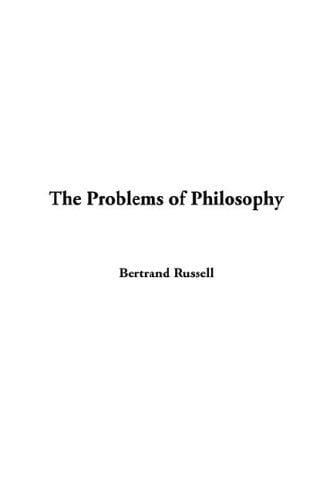The Problems of Philosophy
Explore the enduring problems of philosophy—knowledge, reality, and value—and discover why these age-old questions still shape science, ethics, and daily life.

Introduction: Why the Problems of Philosophy Still Matter
Scroll through any news feed and you will find questions about truth, justice, consciousness, or free will. These are not merely hot takes; they are fragments of conversations that began thousands of years ago. The field that stitches them together is philosophy, and its enduring puzzles are often grouped under the heading "the problems of philosophy." From Plato to Bertrand Russell and up to today’s cognitive scientists, thinkers have wrestled with these foundational issues. Understanding them not only enriches intellectual curiosity but also sharpens the critical skills we rely on in everyday decision-making.
What Do We Mean by “Problems” in Philosophy?
Unlike problems in mathematics, philosophical problems rarely yield tidy numerical solutions. Instead, they raise deep questions whose answers reshape our assumptions about reality, knowledge, and value. Calling them "problems" does not imply that they are always solvable. Rather, each problem is a conceptual knot that demands reflection: What counts as justified knowledge? Does the external world exist independently of perception? How ought we to act? By treating these issues systematically, philosophers clarify concepts, expose hidden premises, and chart new paths for inquiry.
Historical Roots: From the Academy to Russell’s Book
The lineage of philosophical problems begins with the ancient Greeks. Socrates asked what virtue is; his student Plato wondered about the nature of forms; Aristotle examined causality and ethics. Fast-forward to René Descartes, who placed doubt at the heart of epistemology, famously concluding, "Cogito, ergo sum." Immanuel Kant later synthesized rationalism and empiricism, arguing that the mind actively structures experience. In the 20th century, Bertrand Russell’s influential book The Problems of Philosophy introduced students to skepticism, universals, and the limits of certain knowledge. Russell’s concise survey became a gateway for generations, underscoring that these problems are not relics but living questions that evolve alongside science and culture.
Epistemology: Can We Know Anything for Certain?
Epistemology is the study of knowledge—its sources, scope, and limits. The central problem asks: How can we claim to know anything at all? Empiricists like John Locke argue that knowledge originates in sensory experience, while rationalists such as Descartes claim that reason can provide indubitable truths. Modern analytic philosophers analyze justification through theories like foundationalism, which rests knowledge on basic beliefs, and coherentism, which sees beliefs as mutually supporting. Contemporary debates over fake news, scientific skepticism, and artificial intelligence revive the epistemological problem in urgent form. When algorithms curate our reading lists, determining what counts as reliable evidence becomes more critical than ever.
Metaphysics: What Is Ultimately Real?
Metaphysics tackles the nature of reality itself. One classic problem concerns appearance versus reality: Does the world we perceive correspond to an independent external world? Phenomenalists argue that objects are nothing but bundles of perceptions, whereas realists maintain that things exist regardless of whether anyone perceives them. Another metaphysical puzzle involves causation. David Hume famously claimed we never observe causation directly—only constant conjunctions of events. In modern physics, the indeterminacy of quantum mechanics rekindles debates about causality and the existence of objective properties. Questions about personal identity—what makes you the same person over time—also belong here, influencing legal responsibility and medical ethics.
Value Theory: How Should We Live?
No survey of the problems of philosophy is complete without value theory, encompassing ethics, aesthetics, and political philosophy. The ethical problem revolves around the criterion of right action. Utilitarians prioritize consequences and overall happiness; deontologists like Kant emphasize duty and universal moral laws; virtue ethicists revive Aristotle’s focus on character. Aesthetics asks what makes art beautiful or meaningful, a question complicated by digital media and AI-generated imagery. Political philosophy probes justice, liberty, and the legitimate use of power, issues that animate debates over inequality, surveillance, and global governance. Each subfield grapples with normative questions that inform policy and personal conduct alike.
Why These Problems Matter in the 21st Century
Philosophical problems may seem abstract, yet they underlie practical challenges. The ethics of autonomous vehicles hinges on moral theory, while data privacy legislation draws on theories of personal identity and rights. Climate change discussions presuppose metaphysical assumptions about humanity’s place in nature and epistemological standards for scientific evidence. Even everyday disagreements—about what counts as a fact or a fair decision—trace back to these ancient questions. By studying philosophy, we cultivate intellectual humility, logical rigor, and empathy, skills that improve public discourse and personal relationships.
How to Approach the Problems of Philosophy
Navigating philosophical problems requires more than reading canonical texts. First, clarify the question by defining terms. Second, analyze arguments logically, distinguishing premises from conclusions. Third, consider counter-examples and alternative viewpoints. Engaging in dialogue—whether in a classroom, online forum, or informal debate—sharpens understanding and reveals hidden assumptions. Finally, relate abstract ideas to lived experience; when theory meets practice, philosophy becomes a tool for life rather than an academic exercise.
Conclusion: An Invitation to Lifelong Inquiry
The problems of philosophy endure because they concern what it means to be human: to know, to exist, to choose. While definitive answers remain elusive, the pursuit itself is valuable. It teaches us to question authority, test evidence, and contemplate possibilities beyond the immediately visible. Bertrand Russell argued that philosophy keeps alive our sense of wonder by showing unfamiliar possibilities. In a world of rapid technological change and complex moral dilemmas, that sense of wonder—and the critical thinking that accompanies it—has never been more essential. The invitation stands open: join the conversation, and let the enduring problems of philosophy illuminate your path.



